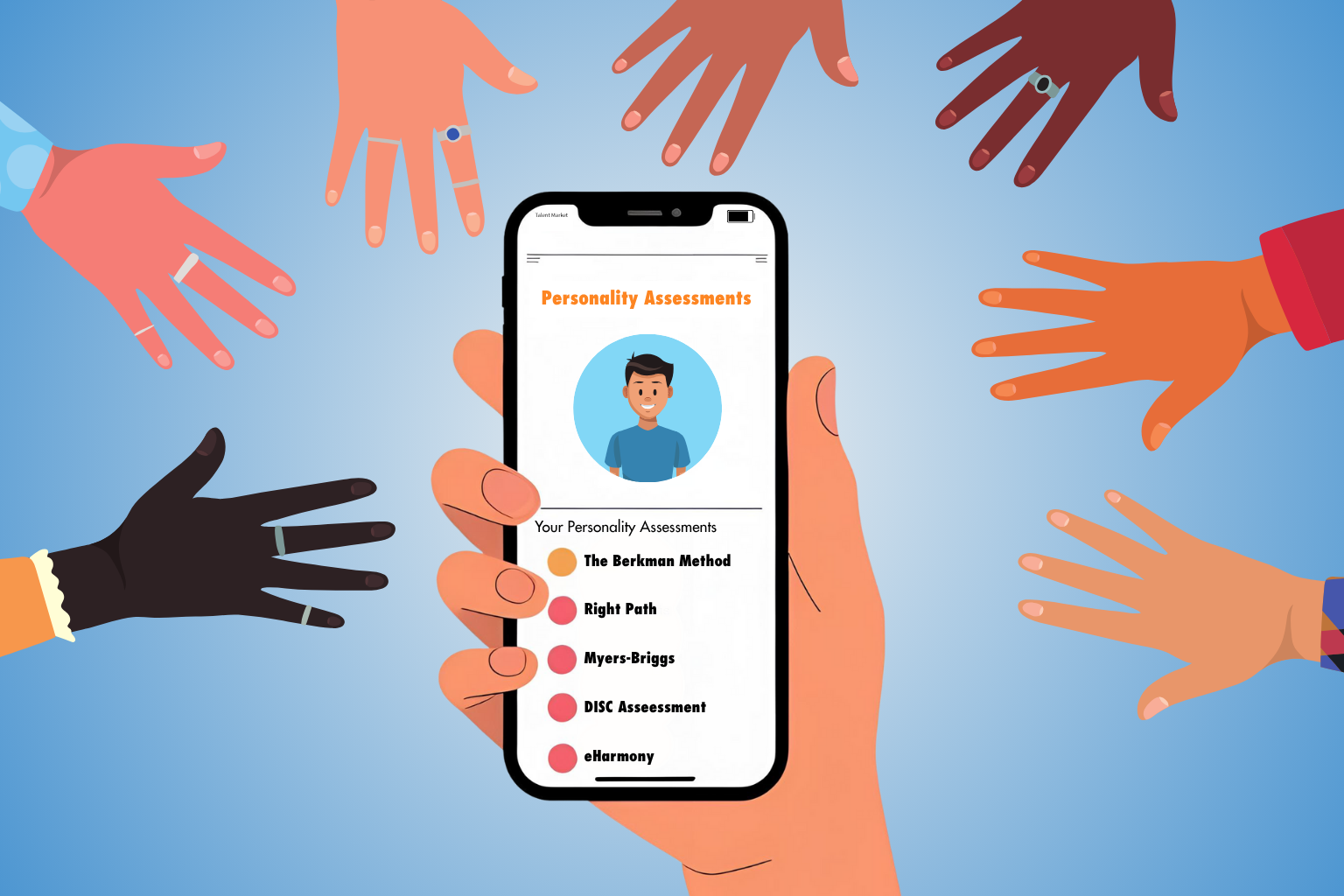Talent Tip #50: Your Advice on Pre-Employment Assessments
Last month I asked you, my gentle readers, for your thoughts and advice about pre-employment assessments. Well, y’all responded like apple addicts to an iphone release! And by that, I mean you responded in droves – not that you lost your cool for a little piece of plastic (see image above).
First, here are some nuggets of advice you offered about assessments in general:
- Let the assessments inform your decision; but don’t let them make the decision for you. From one reader: “While assessments can measure objective traits, I have not found one that is able to measure subjective traits such as how well a potential employee will fit into the organizational culture.”
- Assessments can create a one-dimensional organization. From another reader: “When I was hired at P&G, I was one of the three students in an MBA program that “passed” the test and secured an interview based on their assessment. If you compared the other two individuals who passed, we were very similar. P&G employees in Cincinnati were often referred to as “proctoids” because we talked, thought and acted the same.”
- Be wary of how candidates will respond to testing. Several people reached out to say they thought testing is offensive. The best quote: “I presented myself with full résumé, work samples, extensive workplace references and case studies on previous work projects. If this evidence doesn’t trump a “personality” test that felt more like a word-plat game, then I am not their kind of guy because they are not my kind of employer/workplace.” Well said!
Several of you recommended assessments that you thought were valuable. Among them:
- The Birkman Method – Shaka Mitchell shared this: “I thought the analysis was EXCELLENT. And I went in as a complete skeptic. The instrument not only gives personal insight but it is possible to run the analysis between two test takers so that you get great comparative insights like: ‘When communicating a problem to KITTLE, DOE should be sensitive to his need for positive feedback and acknowledge that the decision is data-driven.”
- Right Path – From Ben Stafford: “I think there’s a lot to be said for Right Path. Some recent work on decision making has shown that when we objectify beforehand and tell ourselves what the parameters are, then we make better decisions than otherwise. Hiring based on a good/thorough personality test is a part of that (DISC, and a few others are not thorough at all). One way to apply this in hiring is to grade an applicant’s answers to each interview question and then determine beforehand, what the total must be for a hire (like higher than a 120). It’s been found that when decisions are made like this much better results come about than if someone is hired (for instance) on a gut feeling, even though the numbers just didn’t add up.”
- Myers-Briggs Type Indicator (MBTI) – While not necessarily used as a pre-employment tool, the Myers-Briggs inventory is often used by organizations to assess talent. From Lyall Swim: “My experience/recommendation is two-fold. One it is important to remember thatthese assessments are not fool proof. They simply represent one more piece of data that can help inform the process and provide context. But to rely heavily on these assessments in making a hiring decision probably means you are walking away from some great candidates that don’t fit a profile test. The book “How to Lie with Statistics” helps outline some of the pitfalls of these test. In addition, here’s great recent article on the MBTI with respect to that: http://www.linkedin.com/today/post/article/20130917155206-69244073-say-goodbye-to-mbti-the-fad-that-won-t-die.
And one group recommended against using an assessment called Profiles XT. The organization didn’t think the results offered enough insight to justify the time and money invested in them.
Finally, you’ll remember that the theme of last month’s e-newsletter was my burning desire for an “eHarmony for hiring.” Well, apparently Neil Clark Warren can read minds; it turns out eHarmony is moving into the job search space! Misty Guard shared this article: http://www.inc.com/samuel-wagreich/eharmony-hire-your-soulmate.html.
